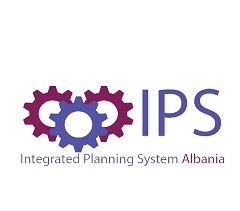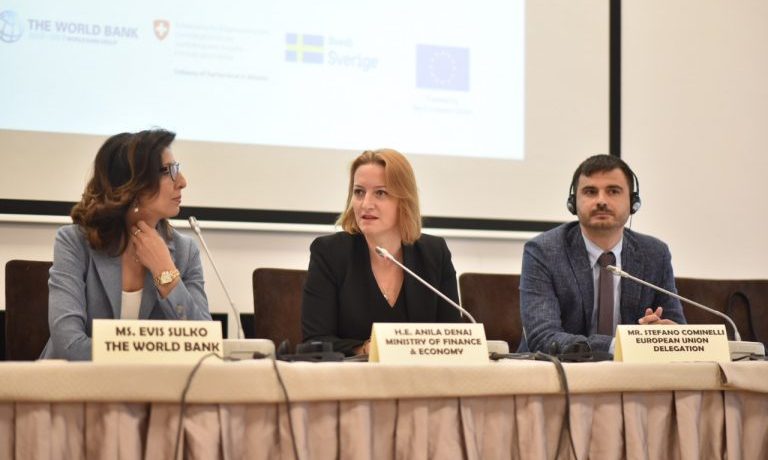Transparency of public finances, fiscal discipline, efficiency in managing and using public resources in order to improve service delivery and economic development, this is what was conveyed by the Minister of Finance and Economy, Anila Denaj, during a meeting organized by the World Bank on 17 April 2019 in cooperation with MFE on the Integrated Public Finance System.
In her speech Minister Denaj highlighted that IPS has started early in time, with the objectives to improve the quality of information and, above all, the quality of decision making.
In 2013, the Albanian government made a self-assessment of the progress and challenges of Public Finance Management, assisted also by its partners, who contributed to the development of a strategy in Public Finance Management reform to address all the gaps this structure.
The vision of the PFM reform strategy was to provide a public financial system, promoting primarily transparency, accountability, fiscal discipline, efficiency in managing and using public resources to improve service delivery and economic development. “Of course, no development can be thought of without modern information technology structures” said Minister Denaj.
The main objective of AFMIS (Albanian Financial Management Information System) is to improve decision making, policy analysis and reporting on the implementation of the Albanian Integrated Planning System. It is a better coordination of donor funds to fully include in the state budget all the needs to coordinate and create information systems, and that of the External Assistance Management Information System (EAMIS), which should manage more effectively and promote responsible and transparent use of the resources of such assistance. This integrated system for public financial management in Albania will be operational for use by all general government units within 2019. The system will be used by more than 4,000 general government employees for two employee training will begin in the coming weeks.
In response to the managerial contribution of the World Bank and the financial contribution of partner countries such as Switzerland, Sweden and the European Union, the Ministry of Finance and Economy has pledged a full commitment to this process.
The Ministry of Finance and Economy will ensure filling the vacancies to ensure that these systems are fully utilized. The training of line ministries is another important factor because they will be the ones populating the data and will need to manage these systems with sequential information.
She concluded her speech by saying that :“It is my personal commitment as a Minister, but I believe it is also to all my colleagues, starting from Mr. Luci as Deputy Minister, who has followed this process and I thank him in particular, as I thank all the contributors, like the World Bank, and all other colleagues who are MFE structures, other central government and local government structures that will be part of this process. If there are problems and issues that need decision-making to solve, we are ready to contribute at any moment”.



 IPS Channel
IPS Channel